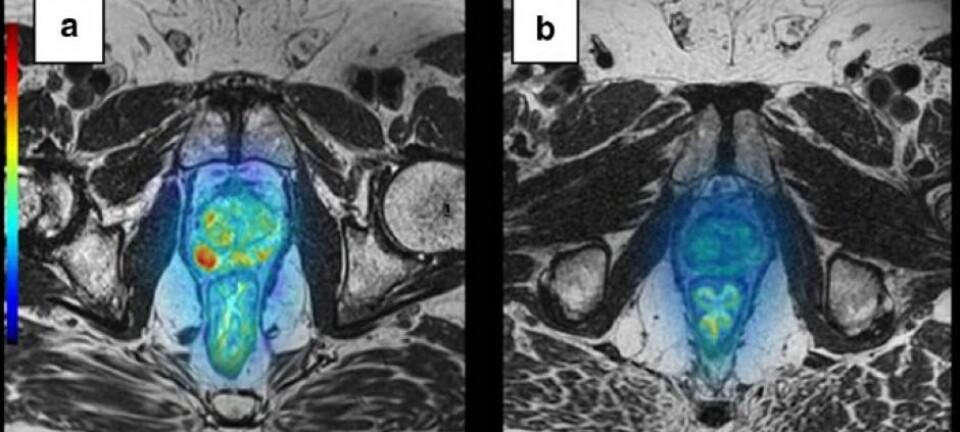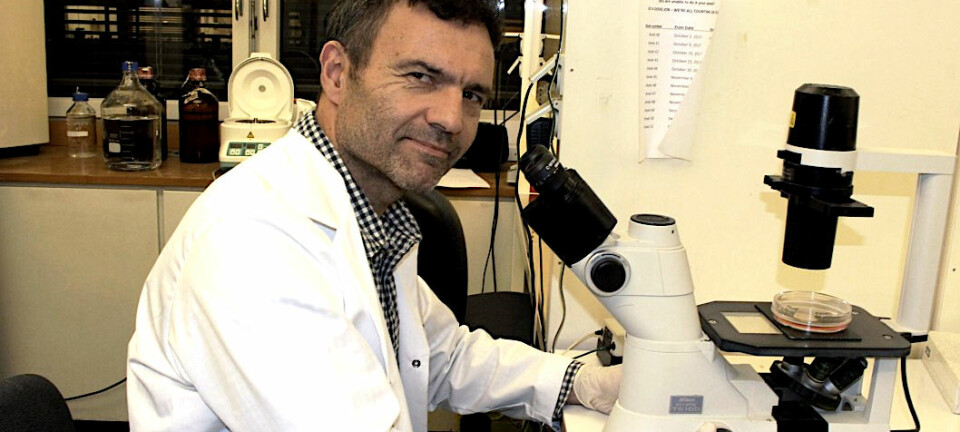
Radiation treatment for prostate cancer increases risk of bladder cancer
Prostate cancer patients who have received radiation have more than twice the risk of getting bladder cancer compared to those who received only hormone therapy. Nevertheless, radiation patients have a much better chance of living longer, according to a new Norwegian study.
Patients with advanced prostate cancer nowadays are often offered radiation along with hormone therapy.
In a new study, researchers looked at the risk that radiation treatment could lead to other types of cancer.
They compared patients who have only received hormone therapy with patients who have received both radiation and hormone therapy.
“We see that the risk of getting a new type of cancer — a so-called secondary cancer — was somewhat greater among those who had been treated with radiation. The primary increased risk was for bladder cancer,” said first author Bjørg Aksnessæther, who is a PhD fellow and senior consultant in the Cancer Department at Ålesund Hospital.
However, the chances of living longer were far better in those who received radiation than in the group that only received hormone therapy.
"Those who only received hormone therapy died to a much greater extent from their prostate cancer," she said.
Important study changed treatment
The study is based on data from a large and important study that was completed in 2009, called the SPCG-7 study.
The study involved 875 Swedish, Norwegian and Danish prostate patients, who were randomly selected for either hormone therapy, or for both radiation and hormone therapy. A randomized study where people are divided by chance means that the groups are more or less similar, which in turn means they can be compared more fairly.
The study showed that men had a better chance of living for a long time if they were treated with both radiation and hormone therapy if they had advanced, local prostate cancer. Advanced, local prostate cancer means that the tumour has grown outside of the prostate capsule, but has not spread to the rest of the body.
“The SPCG7 study made radiation with hormone therapy the standard treatment for this patient group,” says Aksnessæther.
Increased risk of bladder cancer
Now she has taken the data from the 860 Norwegian and Swedish prostate patients one step further, to see how many participants got other types of cancer afterwards.
“Radiation can increase the risk of other types of cancer. And when we followed up on patients an average of 12 years after they had been treated, we saw a 2.5-fold increased risk of bladder cancer in men who had received radiation,” Aksnessæther says.
The researchers also looked at the risk of getting other types of cancer, but found that other cancers did not increase in men who were treated with radiation.
“In another study from June 2019 of patients who had received radiation to the prostate, however, I found a possible increase in both bladder cancer and rectal cancer. Other studies also suggest this. It is possible that our source material was too small to show this,” Aksnessæther says.
Radiation a contributing cause
Aksnessæther believes the increased risk of bladder cancer may have several causes.
“Radiation to this area of the body is definitely a contributing cause. But we also know that patients who get radiation live longer —and the increased life expectancy itself gives them a greater likelihood that they will develop another type of cancer,” Aksnessæther says.
Patients who received both radiation and hormone therapy lived an average of 15.3 years after treatment, while those who received hormone therapy only lived for 12.8 years after treatment. The patients were 67 years on average when they were included in the study.
Some of the patients who had initially been given only hormone treatment were offered the opportunity to receive radiation therapy afterwards — as it became clear that this resulted in better survival.
"This group, which received so-called ‘salvage radiation’ treatment, actually had the best survival of all, and the lowest risk of secondary cancer," says the researcher.
The researchers believe there are two reasons for this.
“It took about seven years before these patients received radiation treatment, which means that we don’t have such a long follow-up time after the radiation. In addition, this was probably a select group, meaning a resourceful and healthy group of men, since they were offered new treatment. Thus, they are basically more likely to live longer than the others,” she says.
Radiation treatment is OK
Aksnessæther emphasizes that they don’t advise patients not to receive radiation.
"We see that 85 percent of cases of bladder cancer are superficial cancers, which the patient is unlikely to die from," she says.
In today's treatment regimen, a greater proportion of patients with local, advanced prostate cancer are treated surgically. But still, a good number of people receive radiation and hormone therapy. It is uncertain what gives the best results, and there is a Scandinavian study underway to investigate this.
“We see that a fair amount of the patients who have been operated need radiation therapy afterwards because they have relapses — the operation has not succeeded in removing all parts of the tumour. We look forward to receiving the results of this new study so that we can give even better advice to patients regarding choice of treatment,” Aksnessæther said.
Reference:
Bjørg Aksnessæther et al: Second cancer in patients with locally advanced prostate cancer randomized to lifelong endocrine treatment with or without radical radiotherapy. Long-term follow-up of the Scandinavian Prostate Cancer Group-7 trial, International Journal of Radiation Oncology, Biology, Physics, November 2019
———

































